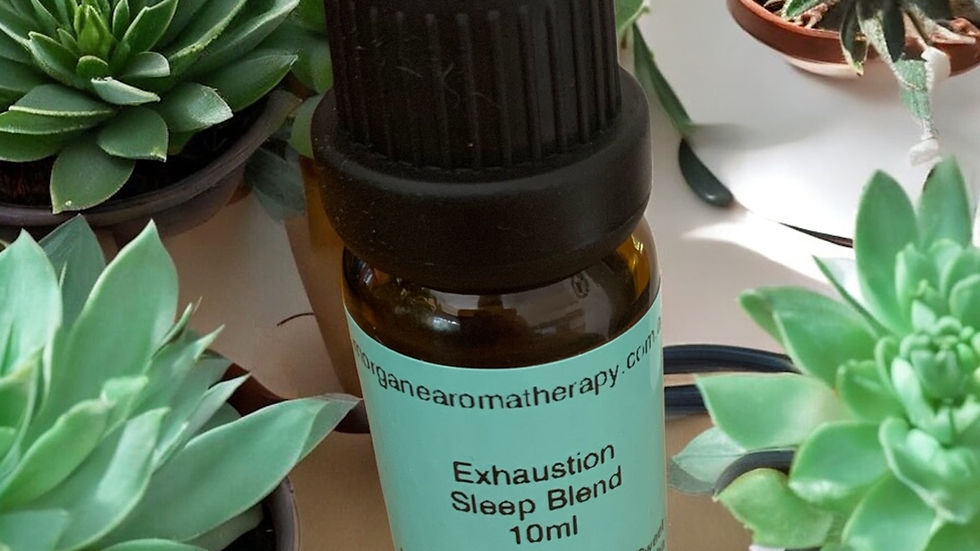The Importance of Quality Sleep: Unlocking Better Health
- morganek1826
- Jun 22
- 3 min read
Updated: 3 days ago
The Power of Sleep in Physical Health
Quality sleep is essential for your body to repair and regenerate tissues. During deep sleep, your body actively heals itself and strengthens your immune system. Research demonstrates that individuals who sleep at least seven hours per night have a reduced risk of infections. Notably, a study revealed that those who sleep less than six hours a night are four times more likely to catch a cold compared to those who get at least seven hours of sleep.
Sleep plays a vital role in regulating essential bodily functions like blood pressure and blood sugar levels. High blood pressure and lack of sleep can worsen these issues. Prioritizing sleep stabilizes these levels, significantly reducing the risk of heart disease.
Mental Well-being: Sleep's Crucial Role
The connection between sleep and mental health is critical and should not be underestimated. Adequate sleep is vital for emotional regulation. Studies show that well-rested individuals manage stress more effectively. In contrast, insufficient sleep can intensify anxiety and depression symptoms.
Additionally, sleep is critical for memory consolidation and cognitive function. When we sleep, our brains process the information from the day. Research indicates that individuals who sleep well perform 40% better on tasks requiring problem-solving skills than their sleep-deprived counterparts.
Protecting Against Chronic Conditions
The relationship between sleep and chronic health issues is significant. Insufficient sleep increases the risk of conditions such as type 2 diabetes and obesity. A study in the journal "Diabetes Care" reported that those who sleep less than five hours a night had a 50% higher risk of developing diabetes compared to those who sleep seven to eight hours. Poor sleep can disrupt hormone regulation, leading to increased appetite and, ultimately, weight gain.
Chronic sleep deprivation can lead to cognitive decline, heightening the risk of dementia. Research indicates that sleep deprivation can accelerate cognitive decline, making it essential to prioritize sleep to protect your long-term health.
The Heart-Sleep Connection
Quality sleep is vital for maintaining heart health. Studies show a direct link between sleep duration and cardiovascular health. Individuals who do not get enough rest often experience increased heart rates and higher blood pressure. A research review found that short sleep duration is associated with a higher risk of coronary heart disease.
Establishing a regular sleep schedule can help maintain a consistent circadian rhythm, supporting heart health. Going to bed and waking up at the same time every day can enhance your overall well-being.
Sleep Hygiene: Tips for Better Sleep
Improving sleep quality involves adopting effective sleep habits, often referred to as sleep hygiene. Here are some practical strategies:
Create a Relaxing Bedtime Routine
Signal your brain that it is time to unwind by engaging in calming activities. Consider reading a book, meditating, or taking a warm bath as part of your nightly routine.
Limit Screen Time Before Bed
The blue light emitted by screens can disrupt your sleep cycle. Aim to turn off all electronic devices at least one hour before bedtime to allow your body to relax.
Maintain a Comfortable Sleep Environment
Your bedroom should promote restfulness. Invest in quality bedding, use blackout curtains, or consider a white noise machine to create a soothing atmosphere.
Stick to a Sleep Schedule
Try to go to bed and wake up at the same time every day. This helps regulate your internal clock and enhances sleep quality.
Limit Caffeine and Heavy Meals Before Bed
Avoid caffeine or heavy meals in the hours leading up to sleep. Ideally, finish eating two to three hours before bedtime.
"Essential oils can enhance your sleep quality by helping you to relax and unwind through the therapeutic effect of the essential oil aroma."
I have made some essential oil blends that can help you fall asleep and stay asleep:
Sleep Pulse Point Roller Blend: Lemon, Marjoram, and Vetiver.
Ease a Racing Mind Blend: Marjoram, Rose, and Petitigrain.
Exhaustion Blend: Orange, Vetiver, and Frankincense.

Embracing the Importance of Quality Sleep
Quality sleep is crucial for maintaining good health. It affects your physical well-being, mental clarity, and protection against diseases. By prioritizing your sleep through effective sleep hygiene, you can unlock the key to greater vitality and overall health. Remember, sleep is not a luxury; it is a necessity. Embrace and nurture your sleep habits to experience the transformative benefits they provide.
Conclusion
In conclusion, recognizing the importance of sleep is the first step towards enhancing your overall health. By following the tips outlined in this post, you can create a foundation for better sleep. Just remember that making sleep a priority is an investment in your future well-being.
Eugenie Morgan
Aromatherapy Practitioner


www.morganearomatherapy




Comments